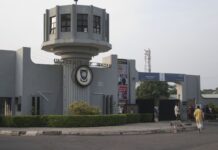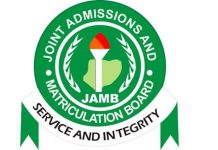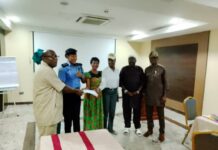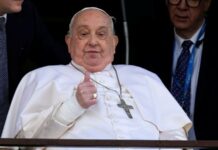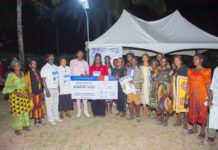Emmanuel Aziken
The return of Asiwaju Bola Tinubu to the country and the attendant rev in political activities undoubtedly underline the fact that business would certainly not be the same in a Tinubu presidency as it has been in the Muhammadu Buhari administration.
Under Buhari things were at most humdrum with the pace and pattern of politics dictated by a shadowy gang of cabal members who completely masked Buhari’s ideas and national goals with their private interests.
It is as such interesting that though Buhari is still president, the political class even while Tinubu was away has been pulling towards the incoming president. Ministers, governors and former Buharists who not too long ago swore in Buhari’s name have now almost disdainfully shoved the outgoing president aside in their sycophantic gestures towards the incoming president.
What we have seen since the return of Tinubu appears to be that the APC would retain the convention of the ruling party zoning the Senate Presidency to the same part of the country that produces the president of the country.
It then means that the aspiration of Senator Jibrin Barau is apparently doomed and he may well be consigned to the position of Deputy President of the Senate.
It then means that either of Senators Goodswill Akpabio, Osita Izunaso and may be, Orji Uzor Kalu may emerge as Senate President.
In the House of Representatives, the APC is faced with a trickier situation given that for the first time the ruling party does not have a commanding majority in the House.
The APC has won 175 seats in the House of Representatives which is six seats short of the 181 seats needed to form a working majority.
The PDP has 118 seats, Labour Party has 35, NNPP 19, APGA five, while SDP and ADC have two seats each and YPP one while three seats are outstanding.
The implication is that presently, the opposition have 182 seats which more than enough to form a working majority.
However, given the cohesiveness of the ruling APC, the permutations are that the party would more likely pick the speaker.
But the aspirations of the about ten aspirants for the position could unbuckle the cohesiveness of the APC and allow the PDP or some other party even pick the speaker.
The three prominent APC aspirants for the speakership are the incumbent deputy speaker, Idris Wase, the chairman of the House Committee on Appropriations, Aliyu Betara, and the chairman of the House Committee on Land Transport, Tajudeen Abbas.
Ordinarily, Wase should be in pole position for the job. However, according to tradition, notably in the Fourth Republic National Assembly, no deputy has ever succeeded to the position of speaker of the House through an election.
Though deputy speakers appear to have more powers than the deputy president of the Senate, especially given the fact that he or she has a constitutional role in law making, it appears that it is a position that has become like a poisoned chalice that has more often than not put holders of the office in more trouble.
In the present situation, Abbas from Zaria, Kaduna State is said to be the favourite especially with the crowd around Asiwaju Bola Tinubu. Hearsay has it that the outgoing speaker, Femi Gbajabiamila has also been mobilizing for him.
The attraction, it appears, flows from the claim that he is one of the favourite disciples of Governor Nasir El-Rufai of Kaduna State who appears to be reaping the investments he made in challenging President Buhari in the early part of this year over the abandoned naira redesign policy framed by the outgoing administration.
Betara who appears to be the more popular aspirant especially among elected and returning members is, however, challenged by the fact that he is from the same state from the vice-president-elect, Senator Kashim Shettima. His supporters are now saying that the precedence of Vice-President Yemi Osinbajo and Gbajabiamila who both claimed Lagos State in 2019 is a steppingstone for his aspiration.
Another challenge for him is that he is said to be from a minority Borno ethnic group, a situation that would give one of the four principal offices of state to a northern minority and also put the Hausa Fulani out of the power loop.
These are advantages that could have worked for Wase, the incumbent deputy speaker who has courted the Hausa Fulani establishment through some infamous actions between 2019 and now.
Many would remember his stance that Diasporan Nigerians have no say in what happens in Nigeria. At a time that passions were hot over the killings in Benue, the deputy speaker while presiding over the House had dismissed a petition forwarded by a Diasporan Tiv group saying that they were out of Nigeria and ignorant of the developments in the country.
He has also been accused of bigotry and sectionalism failing in the path of patriotism that some presiding officers of the House like Alhaji Ghali Na’abba, Aminu Tambuwal, Aminu Masari toed when they presided over the House.
It is a pity that at a time when the office of speaker should be his for the taking that many now feel that Wase may not be wise enough for the job given his most recent actions as Deputy Speaker.
However, the deputy speaker who has not received the support of the outgoing speaker has been going about garnering support from some powerful local lords like James Ibori, Nyesom Wike among others. How far he can go with that is another thing.












